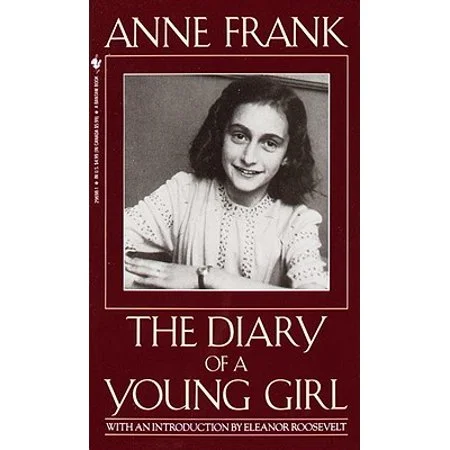A Prom Ticket and a Lawsuit
Movies and YA novels have taught me that proms are stressful occasions. There’s the anxiety of finding a date, tracking down the right outfit, and there’s the horror of actually dancing (ok, some of this may be particular to me). For queer kids, the anxiety was heightened by whether they would even be allowed to show up at prom with a date. In an age where gay or trans prom royalty make headlines, it is perhaps surprising to some that many queer kids have had to sue their school to win the right to attend prom with all the straight kids. In Cumberland, Rhode Island, in 1980, Aaron Fricke broke new ground by being the first gay kid, to my knowledge, to challenge in court a school’s refusal to allow a student to bring a same-sex date.
The events actually started in the Spring of 1979 when Paul Guilbert, Aaron’s friend, tried to bring a male date to the prom. Principal Richard Lynch refused fearing, he claimed, the reactions of other students. While Paul contacted the National Gay Task Force (NGTF) for help, he was only 17 and could not sue without his parent’s support and they refused. Paul’s request received extensive public attention leading the school to provide him protection in between classes. In the Spring of 1980, Aaron decided that he would go to prom with Paul, who had moved to New York after being kicked out of his home, as his date. Unsurprisingly, Lynch said no again. Aaron, unlike Paul, was 18 and also had the support of his father, so he sued with the assistance of NGTF.
One of the things that I love about trial court litigation is how different stories emerge from the same underlying facts. In Judge Pettine’s eventual decision, Lynch is described quite favorably. Pettine was impressed by “the obvious concern and good faith Lynch has displayed in his handling of the matter. Lynch sincerely believes that there is a significant possibility that some students will attempt to injure Aaron and Paul if they attend the dance.” Further, Lynch had extended protection to both Paul, the year before, and Aaron in school so he must have been sincere. Aaron’s account, in his 1981 autobiography, depicted a much different experience in high school. He recalls Lynch beginning the year by telling the senior class that they would have a good year without “the problem” of the year before, a statement that he repeated shortly before the prom. Aaron believe, reasonably, that this referred to the media attention around Paul’s request and described the students as going “wild” cheering Lynch’s statement. He remembered one teacher joking “Thank God, we only have fruit cocktail in the cafeteria now instead of the classroom.” Aaron recalled a senior year of taunts and harassment, even though he was not out yet. A great deal of this harassment occurred in class and with the knowledge of staff. When he sought assistance from the school, including protection, he was rebuffed. He quoted Lynch, responding to the reports of harassment, “Well, that’s to be expected, considering that your classmates are aware of your friendship with Paul Guilbert.”
Aaron reported that Lynch expressed concern about physical violence if he attended the prom but that Lynch added a few other reasons Judge Pettine did not discuss. The most interesting one—one was about liability for an out of state and the other was that unescorted students have long been forbidden, which seems irrelevant—was “The adverse effect among your classmates, other students, the school and the Town of Cumberland, which is certain to follow approval of such a request for overt homosexual interaction (male or female) at a class function.” Aaron interpreted this as publicity. He noted that the protection that Judge Pettine found so impressive was given only after the newspaper ran a picture of Aaron’s beaten up face after a student attacked him in the hallway. In other words, he was only worth protecting when news coverage was involved. During the two day hearing—yep, this took two days—Lynch expressed concern that after the coverage of Paul’s initial attempt other school’s sports teams taunted Cumberland with cries of “faggot” and “queer.” So public gay kids would harm the school’s reputation.
Even under the sympathetic reading of the facts, Judge Pettine ruled in Aaron’s favor. He concluded that Aaron attending the prom with Paul sent a clear message of gay inclusion and equality, that it was in essence an act of symbolic speech. While student speech rights are not unlimited, allowing a fear of other students violently attacking to justify silencing Aaron would be “granting other students a ‘heckler’s veto.’” In other words, it would be encouraging people to attack unpopular speakers to silence them. In such a situation, the school’s job is to protect the speaker and punish the attackers. Aaron won, attended prom, and reported that the night was fun and largely uneventful with only a few comments made.
In some ways, the most surprising part of Aaron’s story is that he went to court at all. Not only because of all of the traditional barriers to court access but also because the gay rights groups at the time were nervous of youth issues. They worried that discussion of kids would play into the disgusting stereotype of the gay predator. So the fact that the NGTF organized legal assistance was itself impressive. While there had been a great deal of litigation winning the right of gay college students to organize student groups, Aaron’s victory is the earliest high school case that I’m aware of. There would be many, many more.


